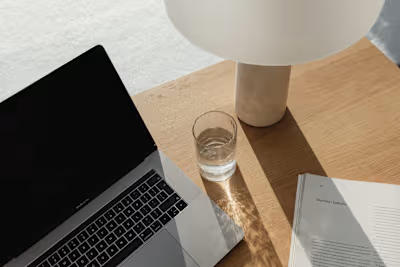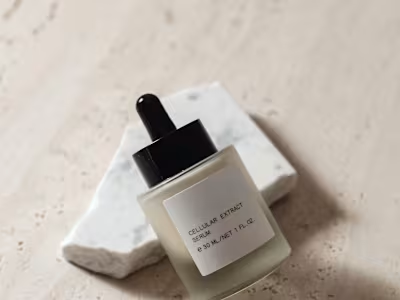What the Heck is Generalized Anxiety Disorder?
Great question. Answer? It’s my entire life.
We both know you can Google what generalized anxiety disorder is—but that’s not gonna tell you much. You’ll just get a list of symptoms, and you can easily say, well, everyone gets anxious. And that is true. Anxiety has a biological reason for existing. It keeps us aware of our surroundings and out of danger.
What most people miss is the disorder part. GAD is an anxiety that creates disorder or dysfunction in your daily life.
Not occasionally. Every single day.
Anxiety disorders are irrational fears stemmed from past trauma. Forget over-worrying and overthinking. That’s just the tip of the iceberg.
It’s the way the body responds to over-worrying and overthinking that creates the disorder.
My Experience with Anxiety
I’ve only been conscious of my disorder for about two years, but it’s been with me for a very long time—since childhood. My main symptom was motor tension, meaning, if you were to touch my shoulders and try to massage them, it’d feel like you’re trying to knead a brick wall.
My muscles were so tight that I’d be in physical pain. It also burned. My left arm burned, my neck was tight, my jaw was tight, and since I was in college, I’d pop an ibuprofen and go, go, go, never addressing the main issue.
Living in a high functioning, high stress society will do that to you.
I swept my stress under the rug until I met my quarterly limit—and then I’d have a big breakdown. Often, in public. Often at work, and I’d have to leave red-eyed and puffy because after crumbling on a regular, random Tuesday.
That’s why we need to talk about trauma. Trauma is stored in the body and it’s important to know your triggers so you can manage it.
We’re not talking about healing, just managing.
Anxiety has a deep link to trauma.
Sudden sounds?
Someone coming up behind me?
A touch I wasn’t expecting?
I’ll jump out of my skin, and you’ll look at me like I’m crazy. I swear, it’s not me being dramatic or attention-seeking. My nervous system is sensitive, hyper-vigilant, and ready to fight or flight at any point in time.
The Devastating Effects of Anxiety
Remember when I said anxiety is a biological response to danger? Well, an anxiety disorder is when the body thinks you’re in danger when you’re not. (Again, on a daily basis.)
Why is my brain gearing up for battle before this 1:1 with my manager?
Why do I literally have to change my clothes after meetings?
Why do I have to lay down for hours after big presentations?
Imagine being at the office and needing to go home because you physically can’t function anymore.
Imagine needing to lie down in the dark for a good 2-4 hours after having a long conversation with someone. (Or worse, a group of people?)
Stop minimizing anxiety. No more aw, you’re just shy!
An anxiety disorder is an internal battle against unstable chemical functions designed to keep you safe. Then, externally, you have to pretend you’re normal a.k.a functional while experiencing this daily disorder. (We love masking, right? Sarcasm.)
Because if you don’t mask, you’ll be ostracized, fired from your job, or worst of all, institutionalized. You’ll feel like a failure for not being able to do something everyone else can do. You’ll feel isolated. You’ll feel lonely.
Add on top of that other physical symptoms including sudden bowel movements, migraines, restlessness, rumination, catastrophizing. . .and the fear.
The Fear of the Unknown
If I want to try something new, it could take weeks. It could be as small as eating at a new restaurant or visiting a new café, to starting a new job or moving to a new place.
Did you notice something about those examples?
They were all positive—but they were also unknown.
Anxiety is the fear of unknown outcomes. Now, add a disorder on top of that. Not only do you have the fear, but now you have a physiological reaction to that fear. A fear that is wholly irrational.
Change creates stress in disordered bodies.
Doesn’t matter if it’s eustress or distress. It’s still stress, and your brain treats it the same way.
For example, say there’s a café I want to try, and in the moment I’m excited, but once I start putting on my shoes and getting my keys, my stomach starts hurting.
My body is telling me don’t do this. Maybe another day.
So, I put my keys down, the discomfort goes away, and I continue to operate within my safe zone. Anxiety loves familiarity. We’ve done it before. We’ve eaten it before, experienced it before, we’ve talked to them before. We like that.
We don’t like watching a new show, trying a new restaurant, or going to a new place. Could be dangerous or triggering. No thanks.
But what’s life about? Experiences and change! Change is the only constant and experiences help you grow. Can you see the daily battle? Can you see how normal, everyday things would have disordered people in tatters?
Living with it
So, what can you do about it? I went the medication route.
It took me a year to get used to the idea of relying on antidepressants to function, but I’m happy with my experience and I’ll probably never stop taking them. You can also go the therapy route. That’s more expensive, but if you can, do it.
My goal is to do both.
But now you ask, okay, you have this disorder that could keep you from doing anything ever, how do you get up and do things?
How do you get up and do new things?
I’m glad you asked! (But remember—I’m on medication. Unmedicated disorders are a whole other beast.)
Talk to yourself. Out loud.
I’ve talked myself out of anxiety attacks.
I’ve talked myself through stressful situations.
I’ve also praised and congratulated myself for accomplishments. Great job, you did this, and you didn’t die. The and you didn’t die part is important, so don’t leave that out!
Build confidence in your abilities.
You can do this because you’ve done that. I’ve broken up with long-term partners after being terrified of not surviving without them. I’ve survived through trauma people easily wouldn’t come back from.
And those things don’t have to be so big.
If you presented in class or at work one time, you can do it again. It doesn’t matter if you have to lay down in the dark for hours at a time after. You did it. And as you continue to do it, it gets easier and easier. Not only did I break up with my partner, but I moved to a different city on my own.
If I can do that, then I can move across the country. If I can move across the country, I move across the globe.
If I got through this panic attack without dying, I can get through this one and so and so forth.
Keep your gut health regular.
Your gut is your second brain, meaning, if you eat bad things, you’re gonna feel bad. Does this mean I still go to Bojangles every now and then? Yes, and I enjoy it. (Even if it destroys me, thanks lactose intolerance.)
But moderation is key.
Drink water, eat well, and go to sleep.
Manage.
I’m not sure if mental disorders are something that can heal and go away forever. Even medicated, I still have symptoms—they’re just manageable.
Now, if I get sweaty after a meeting, I don’t fuss about it, I just change my clothes. If I have to lay down in the dark, I do that and get on with my day. If I have to take a sick day from work because I know that if I keep going, I’ll have an anxiety attack, I do that.
Speaking of sick days, let me tap the mic. Ahem.
If you have a mental disorder, live slowly. Build slowly. Create slowly.
Do not let productivity and self-help gurus guilt trip you into thinking you need to follow their five-step plan and you’ll magically improve every facet of your life in six months. Especially if you’re untreated.
What may take typical people six months can take you two years and there’s nothing wrong with that. You’re dealing with enough. Write two sentences of your novel, do a five-minute workout, then breathe.
This applies to office work, or any other job. You see your colleague working 50–80-hour weeks? That is none of your disordered business.
Go home.
Let it be known that people with anxiety disorders have a disability. Don’t ignore it. Work with it. Not everyone is in their healing season, so be gentle. Be kind.
You never know what people are going through.
Well, that’s enough from me today. If you like this post, be sure to check back for more.
Talk soon!~
Like this project
Posted Jul 5, 2024
A conversational-style article written about Generalized Anxiety Disorder from my blog, Ria Jene.
Likes
0
Views
2





